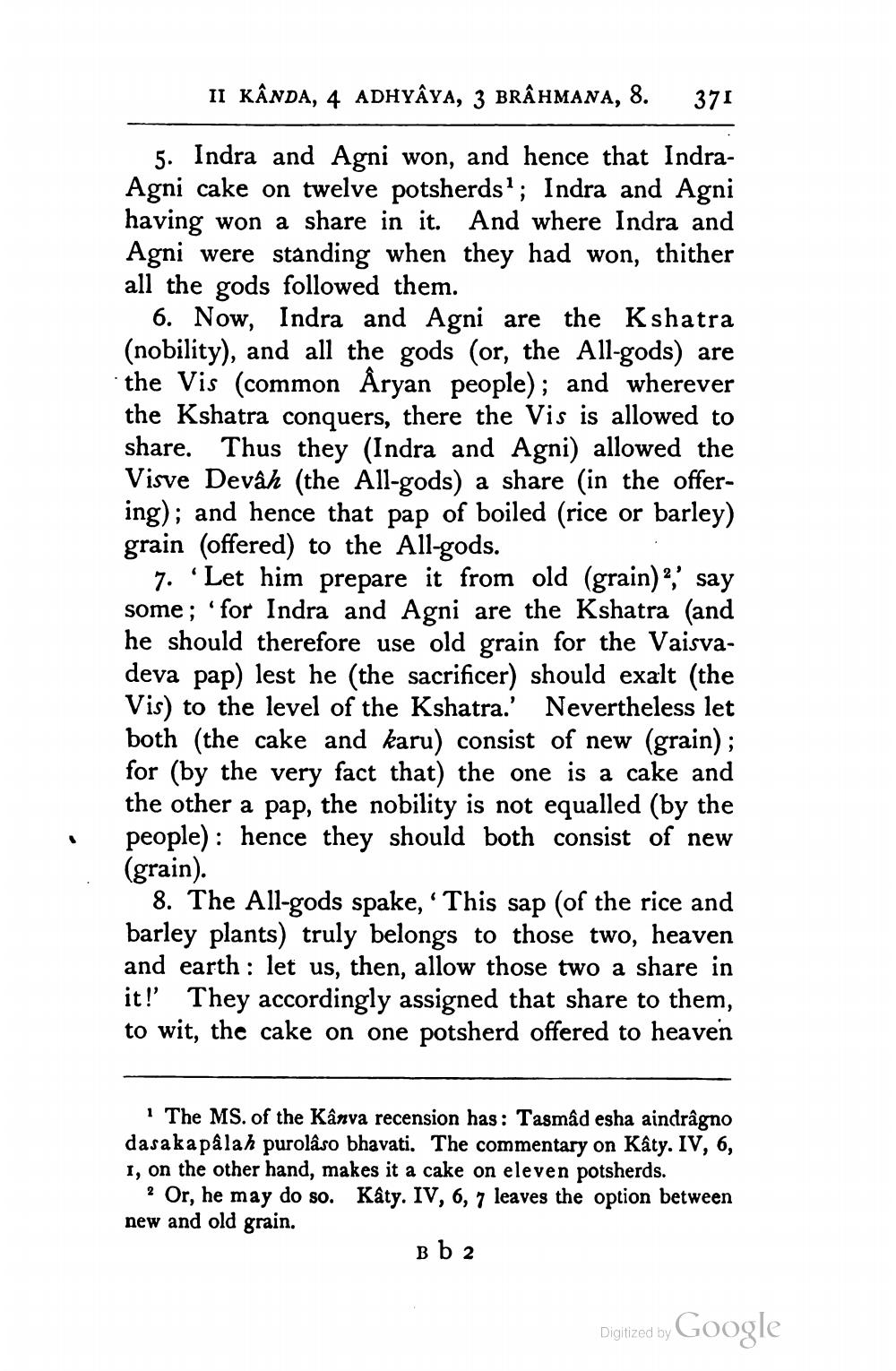________________
II KÂNDA, 4 ADHYAYA, 3 BRÂHMANA, 8.
371
5. Indra and Agni won, and hence that IndraAgni cake on twelve potsherds?; Indra and Agni having won a share in it. And where Indra and Agni were standing when they had won, thither all the gods followed them.
6. Now, Indra and Agni are the Kshatra (nobility), and all the gods (or, the All-gods) are the Vis (common Åryan people); and wherever the Kshatra conquers, there the Vis is allowed to share. Thus they (Indra and Agni) allowed the Visve Devâh (the All-gods) a share (in the offering); and hence that pap of boiled (rice or barley) grain (offered) to the All-gods.
7. Let him prepare it from old (grain)?,' say some; 'for Indra and Agni are the Kshatra (and he should therefore use old grain for the Vaisvadeva pap) lest he (the sacrificer) should exalt (the Vis) to the level of the Kshatra.' Nevertheless let both (the cake and karu) consist of new (grain); for (by the very fact that) the one is a cake and the other a pap, the nobility is not equalled (by the people): hence they should both consist of new (grain).
8. The All-gods spake, ‘This sap (of the rice and barley plants) truly belongs to those two, heaven and earth : let us, then, allow those two a share in it!' They accordingly assigned that share to them, to wit, the cake on one potsherd offered to heaven
1 The MS. of the Kânva recension has : Tasmad esha aindrâgno dasaka palah purolâ so bhavati. The commentary on Kâty. IV, 6, 1, on the other hand, makes it a cake on eleven potsherds.
? Or, he may do so. Kâty. IV, 6, 7 leaves the option between new and old grain.
B b 2
Digitized by Google




